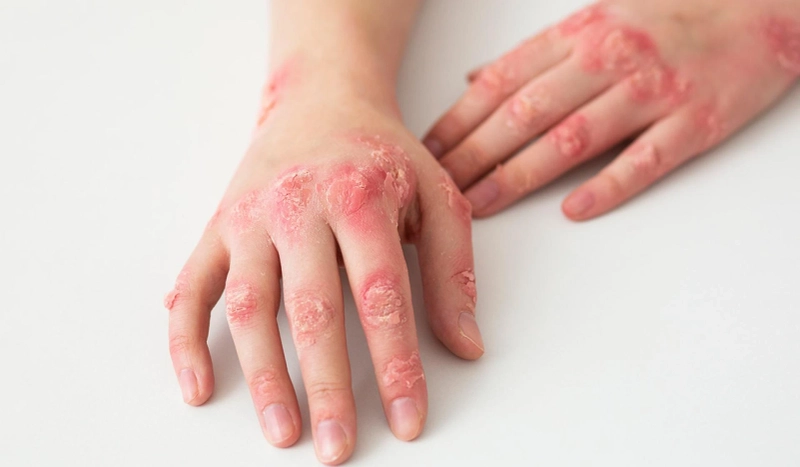Psoriasis is a chronic autoimmune condition that affects the skin, causing red, scaly patches that can be itchy and painful. While there is no cure for psoriasis, there are several treatment options available to manage its symptoms. One alternative treatment that has gained popularity in recent years is a gluten-free diet.
In this article, we will explore whether a gluten-free diet can help manage psoriasis symptoms and the best doctors for psoriasis treatment in Bangalore.
Understanding Psoriasis and Gluten Sensitivity
Psoriasis is a complex condition that is believed to be caused by an overactive immune system, which triggers inflammation and abnormal skin cell growth. The exact cause of psoriasis is unknown, but it is thought to be a combination of genetic and environmental factors.
Gluten sensitivity, on the other hand, is a condition where the body reacts negatively to gluten, a protein found in wheat, barley, and rye. Gluten sensitivity can cause a range of symptoms, including digestive issues, headaches, and skin rashes.
While psoriasis and gluten sensitivity are two distinct conditions, there is some evidence to suggest that they may be linked. Some people with psoriasis may also have gluten sensitivity, and eliminating gluten from the diet may help manage psoriasis symptoms in these individuals.
The Benefits of a Gluten-Free Diet for Psoriasis
There is limited research on the effectiveness of a gluten-free diet for managing psoriasis symptoms. However, some studies have suggested that eliminating gluten from the diet may help reduce inflammation and improve skin health in some people with psoriasis.
A 2015 study published in the Journal of the American Academy of Dermatology found that a gluten-free diet led to significant improvement in psoriasis symptoms in a group of patients with both psoriasis and gluten sensitivity. Another study published in the same journal in 2018 found that a gluten-free diet helped improve skin symptoms in a group of patients with both psoriasis and celiac disease, a severe form of gluten sensitivity.
While these studies provide some evidence to support the use of a gluten-free diet for psoriasis, it is important to note that they are limited in scope, and more research is needed to confirm their findings.
Tips for Following a Gluten-Free Diet
If you are considering a gluten-free diet to manage your psoriasis symptoms, it is important to do so under the guidance of a qualified healthcare professional. A registered dietitian or nutritionist can help you create a balanced and healthy meal plan that meets your nutritional needs while eliminating gluten from your diet.
Some tips for following a gluten-free diet include:
Read food labels carefully to identify gluten-containing ingredients.Stick to whole, unprocessed foods like fruits, vegetables, lean meats, and whole grains that are naturally gluten-free.Avoid processed foods and baked goods that often contain wheat flour or other gluten-containing ingredients.Be aware of hidden sources of gluten, such as sauces, seasonings, and condiments.Consider taking gluten-free supplements to ensure you are getting adequate vitamins and minerals.Best Doctors for Psoriasis Treatment in Bangalore
If you have psoriasis, it is important to seek professional medical treatment from a qualified dermatologist. In Bangalore, there are several reputable doctors who specialize in psoriasis treatment.
Dr. Pranjal Shamsher is a renowned dermatologist who is known for her expertise in advanced aesthetic procedures, including psoriasis treatment. She offers a range of treatment options for psoriasis, including topical medications, phototherapy, and biologic agents.
And she specializes in psoriasis treatment. She offers personalized treatment plans for each patient, taking into consideration their individual needs and concerns. a highly experienced dermatologist who is widely recognized for her expertise in treating psoriasis. She offers a range of treatment Challenges of a Gluten-Free Diet for Psoriasis.
In addition, gluten-free foods can be more expensive than their gluten-containing counterparts, which can be a financial burden for some people. It can also be challenging to find gluten-free options when eating out or traveling, which can limit social activities.
Potential Benefits of a Gluten-Free Diet for Psoriasis
Despite these challenges, some people with psoriasis may find that a gluten-free diet helps improve their symptoms. The potential benefits of a gluten-free diet for psoriasis include:
Reduced inflammation: Gluten sensitivity can cause inflammation in the body, which can worsen psoriasis symptoms. Eliminating gluten from the diet may help reduce inflammation and improve overall skin health.
Improved gut health: Gluten sensitivity can cause damage to the intestinal lining, leading to gut inflammation and a range of digestive issues. Improving gut health through a gluten-free diet may help improve psoriasis symptoms.
Increased nutrient intake: Following a gluten-free diet may lead to an increased intake of fruits, vegetables, and other nutrient-dense foods, which can benefit overall health and potentially improve psoriasis symptoms.
Conclusion
While a gluten-free diet may be a helpful adjunct to psoriasis treatment for some people, it is important to approach it with caution and under the guidance of a qualified healthcare professional. Following a gluten-free diet can be challenging and may not be suitable for everyone. It is essential to work with a registered dietitian or nutritionist to ensure that you are meeting your nutritional needs while eliminating gluten from your diet.
If you are experiencing symptoms of psoriasis, it is important to seek professional medical treatment from a qualified dermatologist.



